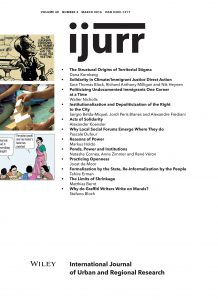Liquid Charity
 by pj.rey
by pj.rey
In the ten days following the earthquake that devastated Haiti’s capital, Americans used text messaging to donate over $30 million. Text messaging has been prominent in the news as of late. Candidate Obama shocked supporters by announcing his vice presidential pick using this new medium. In 2008, Nielson reported that the average teen sends a whopping 2,272 messages a month. A new term, “sexting,” entered popular usage following several high profile cases of teens being expelled or even charged with distribution of child pornography. The Pew Internet and American Life Center reported in 2009 that 15% of teens ages 12-17 received sexually explicit images of people they know. Texting has proven the most dangerous common distraction to drivers. The first images of the plane that crash-landed in the Hudson were uploaded to the Web from the cell phone of a passenger on a nearby boat. The incident was also Twittered by a survivor. Then, of course, there were the protests to the recent Iranian elections, which used personal mobile communication devices to subvert state-run media.
Each of these incidences share a common theme: traditional practices were supplanted in favor of a new set of behaviors associated with mobile communications. That’s the what, but as a social theorist, I suggest we also ought to consider the why. I think Zymgunt Bauman, a remarkably prolific octogenarian sociologist, has a lot to offer us here. Bauman famously speaks of “liquid modernity” where traditional social structures are melting away and fading ambiguously into one another. He argues that things which are liquid, flowing, and mobile tend to undo things which are rigid, solid, and stable.
Mobile communication networks increasingly provide concrete examples supporting Bauman’s theory and Haiti is only the latest instance. The cell phone has made transferring money more immediate, more flexible, and simpler than even the credit card. People need only reach into their pockets for a device which is already profoundly integrated into their lives and dial a few numbers. Within seconds, the transaction is complete and money has flowed from one node in the network to another. The power of such fluid networks is that, with minimal cost in time and money (most were $10 contributions) to individuals, enormous resources can be mobilized. The political implications of this new fluid and hyper-networked reality should not be lost on us.
![]() “Mobile giving to help Haiti exceeds $30 million” by Suzanne Choney
“Mobile giving to help Haiti exceeds $30 million” by Suzanne Choney
![]() “Teaching and Learning Guide for: Social Implications of Mobile Telephony: The Rise of Personal Communication Society” by Scott W. Campbell and Yong Jin Park
“Teaching and Learning Guide for: Social Implications of Mobile Telephony: The Rise of Personal Communication Society” by Scott W. Campbell and Yong Jin Park






Does the liquidity of money undoes some of Simmel’s ideas about money, which relies upon attainability of objects? Or is there still some sense of the attainable, the unattainable, and the too easily attainable? It would be interesting if even liquid money can attain us objects which have value because of human perception of the distance one must go to own the object.
Keri
Keri,
Good questions. I think Simmel certainly prefigures this in a way by emphasizing that value is rooted in the vicissitudes of exchange (as opposed to Marx who roots it in the consistency of labor). Anyway, as far as distance is concerned, I’d say that, in the digital world, ideas are the primary commodity. Ideas often take the form of little packages of code that we generally call “programs” or “apps.” Codes are often protected. In fact, the phrase “digital rights management” (DRM) has come into common usage describing such protections. So, even though exchange can be instantaneous, all sorts of structures and barriers are erected to create distance or scarcity and ensure that exchanges occur on the terms of the rights-holders.
I guess the remaining question is whether the Internet has made many things too easily accessible so that we “under-value” them. This could apply equal to information and relationships. On the one hand, does the freeness of news cause us to value good reporting less? On the other hand, has it become too easy to “friend” someone? Has friendship, for this reason, lost its traditional significance? These are my fears. Data shows that social networks have made people more social, but it is the depth of these relationships that I question. In the same way, the breadth of people’s knowledge is expanding, but this may come at the expense of hard-earned depth.
Best,
PJ